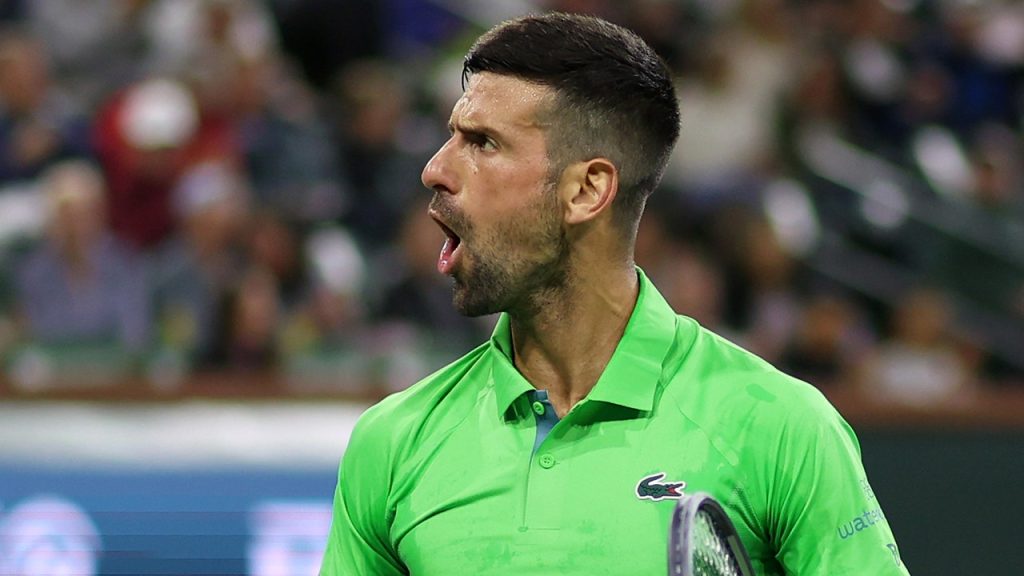Novak Djokovic, the seasoned Serbian tennis star, found himself embroiled in controversy during the 2024 Australian Open, not just for his on-court performance, but also for the surrounding narrative of injury and skepticism. His abrupt retirement from his semifinal match against Alexander Zverev, after losing the first set in a tiebreaker, sparked a wave of doubt and criticism from fans and commentators alike. The situation escalated to the point where Djokovic felt compelled to publicly defend himself against accusations of exaggerating his injury, offering concrete evidence in the form of an MRI scan shared on social media. This incident provides a glimpse into the intense pressures faced by athletes at the highest level of competition, the scrutiny they endure, and the often-blurred lines between public perception and private struggles. It also highlights the complex relationship between athletes and their fans, particularly in the age of social media, where instant reactions and uninformed opinions can quickly overshadow facts and empathy.
The controversy began during Djokovic’s quarterfinal match against Carlos Alcaraz. Towards the end of the first set, Djokovic sustained a left hamstring injury, requiring him to finish the match with his leg taped. He ultimately prevailed in four sets, but the injury cast a shadow over his upcoming semifinal clash against Zverev. While Djokovic managed to start the semifinal, the injury hampered his movement and performance. He struggled visibly throughout the first set, eventually losing in a tiebreaker. The decision to retire from the match, while understandable given his condition, was met with a mixed reaction from the crowd, some of whom booed him as he exited the court. This negative response, combined with the online skepticism regarding the severity of his injury, fueled the ensuing controversy.
Adding fuel to the fire, social media platforms lit up with accusations that Djokovic was faking or exaggerating his injury. Some questioned his decision to retire, suggesting he could have played on or that the injury was not as serious as he claimed. This public questioning of his integrity and commitment to the sport deeply affected Djokovic, prompting him to release the MRI scan of his injured hamstring. The scan, taken the day after his retirement, seemingly confirmed the presence of a tear, providing visual evidence to counter the online speculation. While he didn’t explicitly state the diagnosis or expected recovery time, the image served as a pointed response to his doubters. His caption, “Thought I’d leave this here for all the sports injury ‘experts’ out there,” reflected his frustration with the uninformed criticism he had received.
The incident raises questions about the often-unrealistic expectations placed on athletes. Djokovic, despite being one of the greatest tennis players of all time, is not immune to injury. His decision to retire from the match, while difficult, was likely made in the best interest of his long-term health and career. The expectation that athletes should play through any and all injuries, regardless of the potential consequences, is a dangerous and outdated notion that needs to be challenged. Athletes are human beings, susceptible to physical limitations and pain. Their bodies are their instruments, and pushing through injuries can lead to more serious, long-term damage, potentially jeopardizing their entire careers.
Furthermore, the ease with which people on social media can offer opinions, often without complete information or understanding, exacerbates the pressure on athletes. The anonymity and reach of social media platforms create an environment where unfounded accusations and criticism can spread rapidly, impacting the mental and emotional well-being of those in the public eye. It is easy to forget that athletes, despite their public persona, are individuals with feelings and vulnerabilities. The constant scrutiny and judgment can take a toll, affecting their confidence, performance, and overall mental health.
Zverev, Djokovic’s opponent in the semifinal, addressed the crowd’s reaction to Djokovic’s retirement, expressing disappointment at the boos. He reminded the audience of Djokovic’s immense contribution to the sport over the past two decades, emphasizing the respect he deserved. Zverev’s words highlighted the importance of empathy and understanding in supporting athletes, especially during challenging times. While fans have a right to express disappointment, it should not come at the expense of respecting an athlete’s health and well-being. The incident sparked a broader conversation about fan behavior and the responsibility that comes with being a spectator. It underscores the need for greater awareness and sensitivity towards athletes, recognizing that they are more than just performers on a court; they are human beings navigating the complexities of professional sport, including the inevitable setbacks of injuries. The Djokovic incident serves as a reminder that athletes deserve our support and understanding, not just in moments of triumph, but also in times of vulnerability and hardship.

